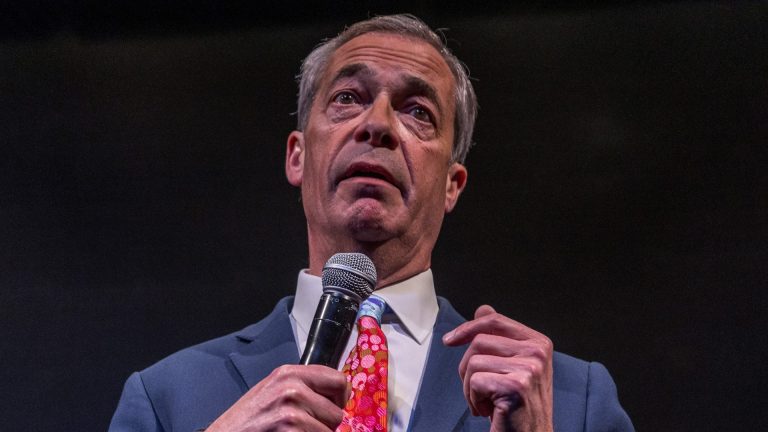What makes a terrorist? Religion? Social exclusion? Wrong sort of brain?
It would be extremely handy to know the answer, especially if you are a government security department tasked with identifying and preventing potential terrorists from doing their thing. Terrorism is precisely what it says it is – terror – and anything that governments can do to minimise terror in the general population is obviously a good thing.
But there is currently a race, politically and academically, to try and find the ‘right’ answer to what makes a terrorist or criminal, or the key to predicting crime in advance in order to prevent it, and this has opened the doors to some dodgy science and silly claims.
The FBI has released many warnings about nonsensical ‘dowsing’ techniques for bomb detection, most recently publicised when British businessman James McCormick was jailed in 2013 for fraud following the sale and use by the Iraqi government of millions of pounds worth of the useless technology. McCormick claimed his device, the ADE 651, worked by ‘electrostatic magnetic ion attraction’.
This is of course complete nonsense, but it sounds plausible to those who would never imagine someone would lie about a bomb detector. The ADE 651 replaced manual vehicle checks at Iraqi checkpoints and have been blamed by some for the failure to detect devices which went on to kill hundreds.
And yet governments and security services remain in thrall to unproven claims. Last July, the Boston Globe reported that for years, the Transport Security Administration (TSA) had been quietly targeting air travellers on US domestic flights with a body language surveillance program called Quiet Skies.
Innocent people, accused of no wrongdoing, are targeted and tracked simply for fidgeting or having a twitchy Adam’s apple. Once identified as having picked at their fingernails once too often, for instance, a team of air marshals then follow the individual, noting when and how often they use the toilet, and all other aspects of their behaviour.
This is, of course, horrifyingly illiberal, particularly if the TSA agents are selecting targets based on race or religion. It is also shoddy science. The TSA has long-used bad science to justify screening by body language, coming under fire from the American Civil Liberties Union (ACLU) and others for its Screening of Passengers by Observation Techniques (SPOT) program, launched in secret in 2006 and exposed in 2015 by an anonymous source.
SPOT is widely considered to be ineffective and not based on sound science. A 2013 report by the United States Government Accountability Office recommended limiting funding for the program on grounds of lack of evidence that it works, saying that SPOT techniques are no better than chance. In 2017 the ACLU concluded, ‘The scientific literature in the TSA’s own files reinforces that deception detection is inherently unreliable’. You could guess and be just as accurate.
The program, costing more than $900 million, has failed to produce a single arrest for terrorism or related charges. It is also racist, with TSA employees themselves claiming that more than 80% of those singled out by SPOT are ethnic minorities.
But that’s over there, you say. Could never happen in Britain, right? Alas, the fight against terrorism knows no borders. In 2010 Heathrow airport and the British Transport Police rolled out a body language spying program of their own, called Behavioural Analysis Screening System. In 2013 Gatwick introduced it too.
It’s slightly better than the USA model, in that our Behavioural Detection Operatives (BDO) don’t follow you onto your flight, but come over and have a word (presumably to see if that prompts you to run away or reach for a detonator). It is no less subject to racial biases and human prejudices, though, despite the assurances of the private security firms involved.
If they don’t like your answer, they’ll call the authorities. I find it highly implausible that such a subjective system could be free from the racial bias which plagues the criminal justice system and policing and which, according to a 2018 government review, is getting worse.
Body language detection is a subset of lie detection, another pseudoscience beloved by American law enforcement. Lie detectors are controversial – not least because those who want them to work are usually heavily invested in there being a way to tell fact from lie, often with emotional stakes – but the very best summary of lie detector tests (polygraphs), is that they do not work for the purpose intended.
Polygraphs can be accurate, but are also heavily subject to errors and examiner bias and, even worse, can be beaten if you know how. And as there is no test for whether or not someone is cheating, you basically have a useless bit of technology.
For this reason, the results of polygraphs aren’t admissible in court. The problem is, once an idea is embedded in popular culture, it tends to stick. People believe in lie detectors, and so can be swayed by the results. Television programmes like The Jeremy Kyle Show use them for dramatic effect, and local councils across Britain keep introducing them to try and catch benefits cheats, despite no scientific evidence supporting their use.
It’s a colossal waste of money. In early 2019, the Home Office announced it may introduce mandatory lie detector tests for recently released offenders, as part of the new Domestic Violence Bill, again, despite no scientific evidence to support such a measure.
It is not the only dodgy science that seems to be catching on in law enforcement circles. A recent eye-catching headline in the Observer about an international research project involving University College London suggested: ‘Brain scans show social exclusion creates jihadists’. The piece went on: ‘International studies of young Muslim men show that radicalisation follows a sense of isolation from society’.
This is a cheap trick. Lots of things follow other things – for example, if you have a cold you can take homeopathy. After a while your cold will go away, and you will say ‘hey, the homeopathy did it!’ But colds go away by themselves, the homeopathy does nothing. This is how fallacious thinking is manipulated to sell quack cures, or, in this case, expensive brain scan studies.
In this particular study, 38 Sunni Muslim Moroccan men ‘expressed willingness to personally engage in, or facilitate, defence of values advocated by jihadist groups’ after being paid 20 euros to complete a survey about their political beliefs.
The ‘jihadi brain’ study was part-funded by the United States Department of Defense, which is presumably (and understandably) looking for data to help fight terrorism. But a government funding this study rings alarm bells for many reasons, not least the USA’s ‘Protecting the Nation from Foreign Terrorist Entry into the United States’ policy, aka ‘The Muslim Ban’, which is or isn’t racist and Islamophobic, depending on which court you ask. (For what it’s worth, in 2015 Trump called for ‘a total and complete shutdown of Muslims entering the United States’.)
If the DoD is looking for scientific proof to bolster such policies, the misrepresentation of the ‘jihadi brain’ study is of major concern. If it was the department of Let’s Fix Social Exclusion then I’d welcome any attempt to get to the bottom of why any group (not just Muslims) feels excluded.
After all, the majority of domestic terrorism in the United States is committed by white men (as you would expect from a population that is 75% white). Whatever is going on in terrorist brains isn’t limited to Islamic terrorists. Terror is terror. Attempts to understand what radicalises someone into murdering others for a cause or perceived injustice are commendable. But not if you single out Muslims in a brain scan study. That implies there is something different or specific about a Muslim brain, or a Muslim terrorist’s brain, and there isn’t evidence of that.
The study simply compared one group of Muslim men to another, with no control group. Without, for example, a group of Christians or atheists to compare to, you can’t know if your results are related to specific religious beliefs or not. That’s far from the only problem with the study, from the small control group to the wording of the questions. (You can get a lot of noise in MRI scans from the subject simply having to think about the way question is written or asked.)
There’s also an ethics issue. One of the political beliefs potential jihadists were quizzed about concerned ‘Western military forces being expelled from all Muslim lands’. But the study was co-funded by those very forces. If the subjects knew that, then they might have simply told researchers what they wanted to hear. But as signed informed consent procedures were waived for this study, we don’t know what participants were told, and therefore what biases were involved.
We all have an interest in fighting terrorism, but the cost of pseudoscience can be high. From magic bomb detectors to poorly-designed studies, we should take grand claims about terrorism with a very large pinch of salt.












